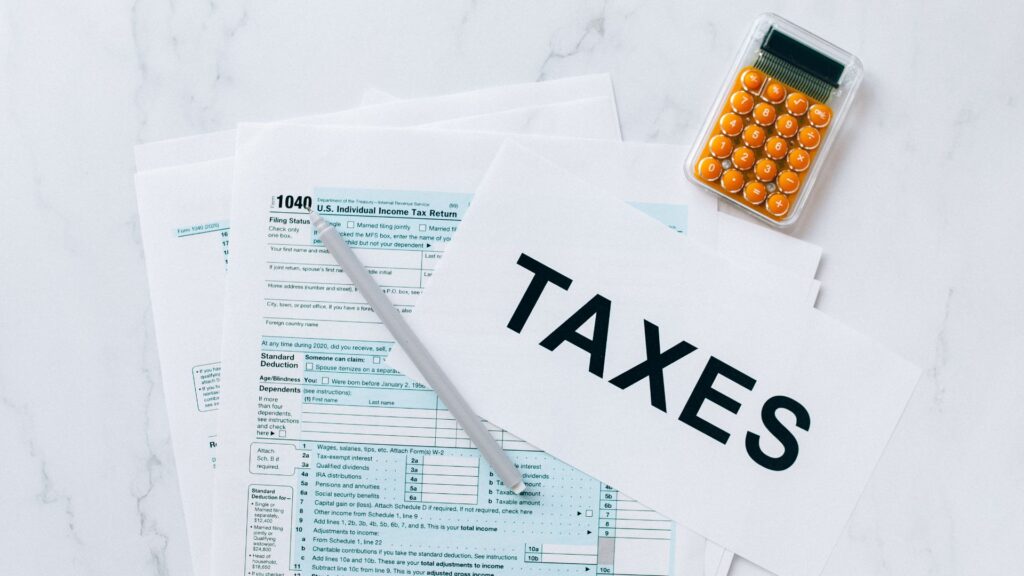The UAE introduced Value Added Tax (VAT) in early 2018 as part of the GCC agreement to diversify government revenues and reduce dependency on oil income. VAT is an indirect tax levied on the supply of goods and services, applied at every stage of the supply chain. It helps fund and maintain essential public services like education, healthcare, and infrastructure. As of 2024, the standard VAT rate in the UAE is 5%, with specific exemptions for certain goods and services.
For businesses, VAT introduces new compliance and administrative requirements, especially as regulations evolve. This comprehensive guide explores the intricacies of VAT registration in 2024, covering:
- Eligibility for VAT registration in the UAE
- Step-by-step VAT registration process
- Required documents for VAT registration
- Consequences of not registering for VAT
- Benefits of working with Proactive zone

Who is Eligible for VAT Registration in the UAE?
VAT registration requirements in the UAE cater to businesses of various sizes and sectors, ensuring comprehensive compliance. As per amendments implemented in early 2023:
- Mandatory Registration: Businesses with taxable supplies and imports exceeding AED 375,000 per year must register for VAT. This also applies to businesses expecting to surpass this threshold within the next 30 days.
- Voluntary Registration: Businesses with taxable supplies and imports between AED 187,500 and AED 375,000 can voluntarily register. This allows them to reclaim VAT on business expenses, enhancing financial management and competitiveness.
Certain exemptions may apply based on specific business activities. For instance, businesses may be exempt from VAT registration if all their supplies are zero-rated or if they no longer make any supplies other than those zero-rated. Certain sectors benefit from VAT exemptions to streamline operations and ensure compliance clarity.
Types of VAT Supplies in the UAE
- Standard-rated Supplies: Goods and services subject to a 5% VAT rate, including a wide range of consumer and business transactions.
- Zero-rated Supplies: Supplies with a 0% VAT rate, allowing businesses to claim relevant input tax. Examples include certain education services, healthcare supplies, exported goods and services, and precious metals like gold and silver.
- Exempt Supplies: Supplies that neither charge VAT nor allow input tax recovery, such as residential properties, undeveloped land, public transport services, life insurance, and certain financial services.
- Deemed Supplies: Transactions that require VAT charging, such as the sale of business assets without consideration, transfer of business assets between UAE and other GCC Implementing States, and goods used for non-business purposes where input tax was claimed.
- Out-of-scope Supplies: Supplies falling outside the scope of UAE VAT law and not subject to VAT regulations set by the FTA.
Understanding these categories helps businesses navigate VAT obligations effectively, ensuring compliance while managing operational costs and financial resources efficiently.

Step-by-step Guide to VAT Registration in the UAE
VAT registration can be confusing, but here is a simplified five-step guide to help:
- Create an e-Services Account: Visit the Federal Tax Authority (FTA) website and create an e-Services account. This account is essential for accessing the VAT registration form and managing your tax affairs electronically.
- Complete the Registration Form: Fill out the VAT registration form accurately, providing comprehensive details about your business activities, turnover, and contact information. Ensuring all information is correct helps avoid registration delays.
- Submit the Required Documents: Gather and upload the necessary supporting documents as per FTA requirements. Ensure these documents are clear and valid.
- Receive Your TRN (Tax Registration Number): After submitting your application and supporting documents, the FTA will review your registration. Upon successful verification, you will receive a Tax Registration Number (TRN) via email.
- Start Issuing Tax Invoices: Once registered, your business must comply with VAT regulations, including issuing tax invoices that display your TRN. Keep detailed records of all VAT-related transactions, invoices, and correspondence with the FTA to facilitate audits and compliance checks.
Documents Required for VAT Registration in the UAE
To complete your VAT registration process, prepare the following documents:
- Trade license
- Passport copies of shareholders
- Emirates ID copies of shareholders
- Financial statements
- Bank account details
- Proof of business address
Ensure all documents are clear, valid, and comply with FTA requirements to avoid registration delays. Proactive zone can provide a handy checklist to expedite the process.
Consequences of Not Registering for VAT in the UAE
Failing to register for VAT or comply with VAT regulations in the UAE can lead to significant consequences, including:
- Financial Penalties: Fines may be imposed for non-registration or late registration.
- Legal Liabilities: Non-compliance with VAT regulations can result in legal actions and restrictions on business activities.
- Reputational Damage: Non-compliance can damage your business’s reputation and affect customer trust.
For example, failing to issue a tax invoice, credit note, or document during a supply can result in an AED 5,000 fine for each missing document, while tax evasion can lead to a fine costing 300% of the tax evaded.
To avoid these consequences and maintain operational continuity, adhere to VAT requirements and stay updated with the latest regulations. Working with a reputable agency like Proactive Zone can help ensure your business remains VAT compliant and meets all necessary requirements. Consult with a VAT & Tax Consultant today to navigate complexities, avoid penalties, and secure your business’s financial health.






